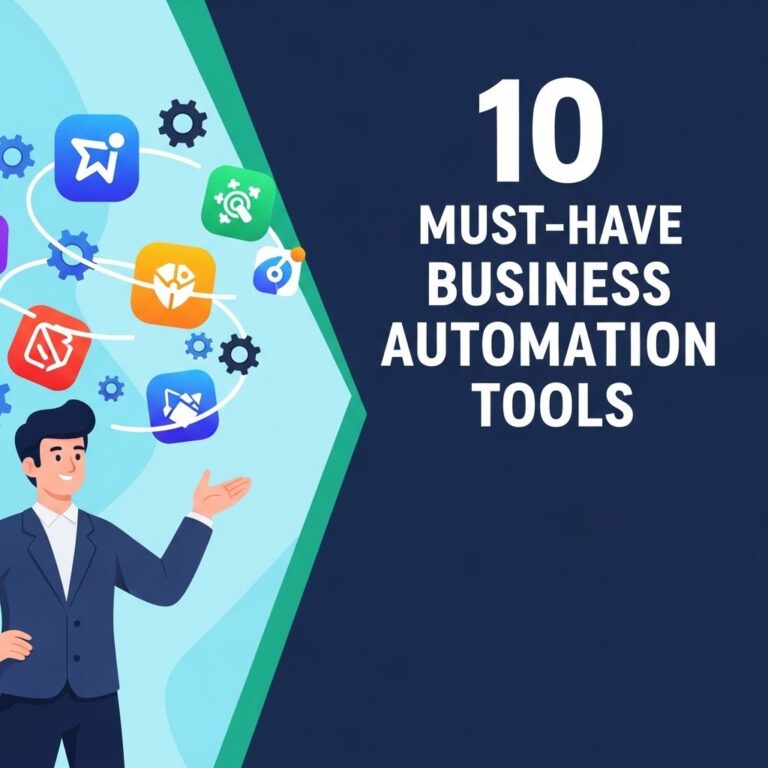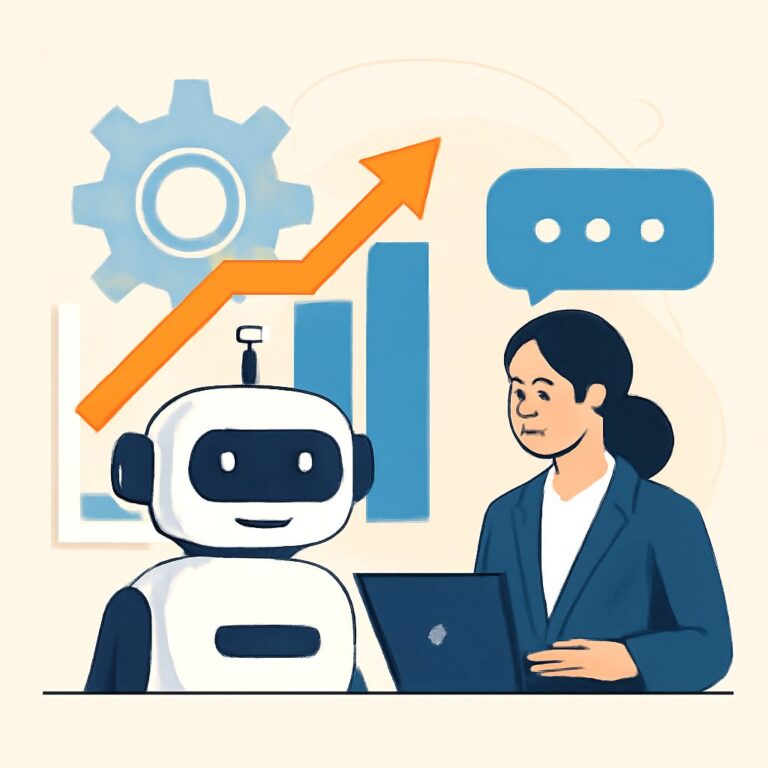In today’s fast-paced digital landscape, businesses are constantly seeking innovative solutions to enhance their operations and improve customer engagement. One of the most transformative technologies in recent years has been artificial intelligence (AI), particularly in the form of chatbots. These intelligent systems are not just a passing trend; they represent a strategic investment that can significantly increase a company’s revenue and streamline its processes. This article delves into the various aspects of integrating AI chatbots into business operations, highlighting their benefits, implementation strategies, and the future of conversational AI.
Table of Contents
The Rise of AI Chatbots in Business
AI chatbots have evolved from basic automated responses to sophisticated conversational agents capable of understanding and responding to user queries in natural language. This transformation is fueled by advancements in machine learning and natural language processing (NLP), enabling chatbots to perform various functions that can enhance business operations.
Key Benefits of AI Chatbots
Investing in AI chatbots offers numerous advantages for businesses, including:
- 24/7 Availability: Chatbots can operate round the clock, providing customer support outside of traditional business hours.
- Cost Efficiency: Reducing the need for a large customer support team can significantly lower operational costs.
- Improved Customer Experience: Quick responses lead to higher customer satisfaction and loyalty.
- Scalability: Chatbots can handle thousands of inquiries simultaneously, making them ideal for businesses experiencing growth.
- Data Collection and Insights: Chatbots can gather valuable data on customer preferences and behaviors, helping businesses make informed decisions.
Implementing AI Chatbots in Your Business
Introducing a chatbot into your business may seem daunting, but with a structured approach, it can be seamlessly integrated into your existing systems. Here’s a step-by-step guide to implementing AI chatbots effectively.
1. Define Your Objectives
Before deploying a chatbot, it’s crucial to define what you want to achieve. Common objectives include:
- Enhancing customer support
- Increasing sales through lead generation
- Providing personalized recommendations
- Streamlining internal processes
2. Choose the Right Platform
There are various platforms available for building AI chatbots, each with its advantages. Consider the following options:
| Platform | Features | Best For |
|---|---|---|
| Dialogflow | Advanced NLP, integrates with Google services | Businesses with technical resources |
| Chatfuel | No coding required, easy to use | Small to medium enterprises |
| Microsoft Bot Framework | Highly customizable, strong enterprise capabilities | Large businesses with specific needs |
3. Design Conversations
The success of a chatbot depends on how well it can engage customers. Design conversations that are:
- Clear: Ensure users understand how to interact with the chatbot.
- Contextual: Tailor responses based on user intents and historical interactions.
- Human-like: Use friendly language and tones to create a more engaging experience.
4. Test and Optimize
Before launching your chatbot, conduct extensive testing to identify areas for improvement. Monitor interactions and gather feedback to refine the chatbot’s responses and functionality continuously.
Use Cases for AI Chatbots
AI chatbots can be used in various sectors, each benefiting from tailored functionalities. Here are some prominent use cases:
Customer Support
In the realm of customer service, chatbots can:
- Handle frequently asked questions
- Guide users through troubleshooting steps
- Provide order tracking and updates
Sales and Marketing
Utilize chatbots to:
- Engage potential customers with personalized marketing messages
- Assist in completing purchases through conversational commerce
- Collect customer information for targeted marketing campaigns
Human Resources
In HR, chatbots can streamline processes by:
- Answering employee inquiries
- Facilitating onboarding procedures
- Conducting surveys to gauge employee satisfaction
Measuring the Impact of AI Chatbots
Once implemented, it’s essential to measure the effectiveness of your chatbot. Key performance indicators (KPIs) to consider include:
- Response Time: How quickly the chatbot responds to inquiries.
- Customer Satisfaction Score: User feedback on their experience with the chatbot.
- Conversion Rates: The percentage of interactions that lead to desired outcomes, such as sales.
- Cost Savings: Reduction in customer support expenses.
The Future of AI Chatbots
As technology continues to advance, the capabilities of AI chatbots are expected to expand further. Future trends may include:
- Enhanced Personalization: Chatbots will become more adept at recognizing individual customer preferences and adapting interactions accordingly.
- Integration with Other Technologies: Chatbots will increasingly work alongside other AI systems, such as predictive analytics and CRM software.
- Greater Emotional Intelligence: Future chatbots may utilize sentiment analysis to respond more empathetically to users.
Conclusion
AI chatbots represent a powerful tool for businesses looking to optimize operations and enhance customer interactions. By carefully implementing and continuously improving these systems, companies can not only improve efficiency but also boost revenue and customer satisfaction. As we look to the future, the integration of advanced AI technologies into chatbots will only deepen their role as essential components of successful business strategies.
FAQ
What are AI chatbots and how can they benefit my business?
AI chatbots are automated conversational agents that use artificial intelligence to interact with customers. They can enhance customer service, streamline operations, and increase sales by providing instant responses and 24/7 availability.
How do AI chatbots improve customer engagement?
AI chatbots improve customer engagement by providing personalized interactions, answering queries in real-time, and facilitating seamless communication across various platforms, leading to higher customer satisfaction.
Can AI chatbots help reduce operational costs for businesses?
Yes, AI chatbots can significantly reduce operational costs by automating routine tasks, minimizing the need for extensive customer support teams, and increasing efficiency in handling customer inquiries.
What industries can benefit from AI chatbots?
AI chatbots can benefit a wide range of industries, including e-commerce, healthcare, finance, hospitality, and more, by enhancing customer service, improving lead generation, and facilitating transactions.
How do I integrate AI chatbots into my existing business system?
Integrating AI chatbots into your business system typically involves choosing a chatbot platform, customizing the bot’s functionality to fit your needs, and ensuring it connects with your existing customer relationship management (CRM) and other tools.
What features should I look for in an AI chatbot for my business?
When selecting an AI chatbot, look for features such as natural language processing, multi-channel support, analytics and reporting capabilities, easy integration, and the ability to learn and improve over time.









